What Spycops Did Next
Although it may be hard to feel sympathy for the officers of Britain’s political secret police units, there’s no doubt the enacted split in their lives and values caused them severe psychological stress. In a less understanding era, and amidst the inherently macho police culture, such damage was seen as a personal weakness, but since the mid 1990s a few have successfully forced payments out of the Met for PTSD and other harms.
All spycops had to be married. Having a family was thought to give them an anchor in their ‘real’ life – something to come back out for, to prevent them getting lost in their activist social circles or to prohibit temptation to switch sides. Still, the strain on relationships – the secrecy, absence, the warping of personality caused by having two characters inhabiting one mind – has broken one family after another.
Whilst the shocking accounts of activist women abused by spycops have come to light, we are yet to hear from the damaged families also caught up in these stories, though this may change as the forthcoming public inquiry has granted several members of officers’ families ‘core participant’ status.
Beyond their ruined families, after long-term niche activity, spycops aren’t qualified for much else. So what did they do afterwards? Most of the 150 or so spycops are unknown, though the few we have identities of point us to examples of what their lives look like.

Mark Kennedy, 2011
Mark Kennedy’s deployment ended in late 2009 and even before he left the police he had signed a contract to do the same spying under the same false identity this time for a private firm.
He was hired by Global Open, a company set up by another former Special Branch officer, Rod Leeming, who had taken knowledge and contacts from the police’s Animal Rights National Index and was using it to provide spies for institutions targeted by animal liberation campaigners. Kennedy – without fake ID or his team of police handlers, strategists and psychologists – soon came unstuck and was exposed by activists.
Prone to self-aggrandising claims, in February 2013 he told the Home Affairs Select Committee he worked for the Los Angeles Sheriff’s Department, adding that he had just taken a security job with a large leisure firm. It’s comforting to imagine this means he is doing nightwatch in a leaky caravan at Center Parcs.
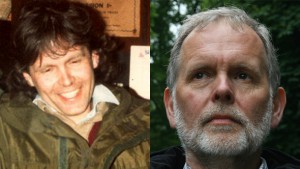
Bob Lambert then and now
Bob Lambert had been undercover in animal rights groups in the 1980s. He set people up for jail, had numerous sexual relationships including fathering a child, and allegedly burned down a department store.
His was ‘hands down regarded as the best tour of duty ever’, leading to promotion as head of the Special Demonstration Squad (SDS) from 1993-1998, deploying a new generation of officers who took his methods as a template.
It’s not clear what he did from 1999-2001, though it’s notable that this is when the other spycops unit, the National Public Order Intelligence Unit (NPOIU), was established.
In 2002 he set up the Muslim Contact Unit. It’s very odd that the Met’s Special Branch, as intelligence gatherers, would run a community outreach project. It’s even more fishy that they did so using their most effective infiltrators who had no other obvious skillset. Why use spies, unless you’re spying?
Lambert left the police in 2007, collecting an MBE ‘for services to policing’ on his way out. He then gained several academic posts and began writing and speaking on counter-extremism, notably regarding Islam. After his past was revealed by activists in 2011, he swiftly resigned from his planned ten-year project at Exeter University and stopped his public appearances.
He continued to lecture at the University of St Andrews and London Metropolitan University, training a new generation of police managers. Following a series of protests at both institutions, including talks to staff and students, and with the excoriating IPCC report on Lawrence family spying pending, he resigned from both positions in December 2015.
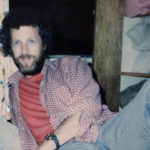
Mike Chitty undercover in the 1980s
Mike Chitty was the first SDS officer tasked with infiltrating the animal rights movement. Rather than inveigling himself into hardcore activism he was ineffectual and only ever managed to be a peripheral member of animal welfare groups. Like many undercover officers, he moved on to police VIP protection work.
Two years later, in 1989, Chitty secretly returned to his old targets. He wasn’t interested in the politics but rekindled friendships and romantic relationships. He would change his clothes, swap cars and become ‘Mike Blake’ again.
After a further two years, his bosses wondered why his claims for travel expenses were so much higher than his colleagues and why he was working in Wiltshire but buying petrol in Surrey. His superiors sent Bob Lambert to investigate.
Lambert spent 18 months feigning friendship and persuading the disgruntled Chitty not to take action against the police or go to the press. In May 1994, Lambert presented his report to his bosses at Special Branch. Suitably impressed, they made him Head of Operations in the SDS by the end of the year.
The following year Chitty finally brought a claim against the Met, but dropped it when he was awarded an ill-health pension. He ended his four-year double life and emigrated to South Africa.
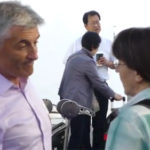
Helen Steel confronts John Dines, 2016
John Dines, who overlapped with Lambert infiltrating London Greenpeace, began a relationship with Helen Steel shortly before McDonald’s served the McLibel writs. They lived together for two years.
Steel tenaciously investigated and exposed Dines in 2013, but this was not the end of it.
She also discovered he is now working at an Australian university, training officers in political secret police work.
Visiting Sydney to confirm it, Steel confronted him personally and ensured he was covered by Australian media and politicians.
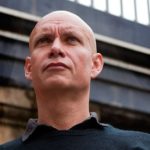
Former SDS officer Peter Francis
Peter Francis spied on racial justice campaigns in the 1990s. He became disenchanted with the purpose of the work, and, after his deployment, brought a claim for PTSD. In 2010, months before any spycops had been outed, he did an anonymous interview with The Observer. He used the article to tout for a book deal but no publisher thought the issue would be interesting to readers.
Following Mark Kennedy’s unmasking, Francis – under the pseudonym Pete Black – guardedly gave more information to Guardian journalists Rob Evans and Paul Lewis. The wealth of material formed the core of their definitive book Undercover: The True Story of Britain’s Secret Police.
In June 2013, Francis finally came out of the shadows and was interviewed for the explosive Dispatches documentary which revealed he had been ordered to discredit Stephen Lawrence’s family.
Unique so far among the spycops, he has subsequently given statements which have been helpful to justice campaigners rather than himself. It’s surprising that he has only been the subject of one smear piece in the Daily Mail, though they may be saving more to discredit his testimony in the pending public inquiry.
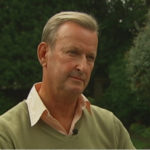
Roger Pearce, 2013
Roger Pearce is something of an outlier in terms of our knowledge. Rather than being exposed by those he spied on, we only have a tapestry of his own admissions (so much for the Special Branch’s ‘sacred’ policy of Neither Confirm Nor Deny’).
Pearce was an undercover SDS officer from 1978-1980 and went on to run the unit in the mid 80s, overseeing Lambert and Chitty. He stayed with the Met’s Special Branch and was its head for the final years of his police career, 1999-2003, which were the first four years of the NPOIU. He then took a counter-terrorism post with the Foreign Office before moving on to be European Security Director for GE Capital.
In recent years, he has published two police spy novels, Agent of the State (which, according to his website is being adapted for TV), and The Extremist.
Since the spycops scandal saturated the headlines, he has made a number of media appearances to defend spying on the Lawrence family and stealing dead children’s identities. He has also refused to condemn the use of sexual relationships or the fathering of children.
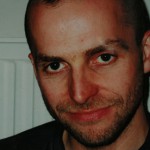
Jim Boyling whilst undercover in the 1990s
Jim Boyling was the star protégé of his manager, Bob Lambert. Undercover from 1995-2000 – during which time he had two children with Rosa, a women he spied on – he was still a serving police officer when he was exposed in January 2011. His behaviour, though typical of spycops and well known to his superiors, was indisputably serious and he was suspended pending an investigation into his professional conduct. In what is, even by corrupt police cover-up standards, an astonishing feat of procrastination, six years later the investigation is understood to be still in its preliminary stages.
The Crown Prosecution Service looked into whether Boyling and other officers should face criminal charges. They appear to have taken Boyling’s version of events at face value and not bothered talking to anyone he targeted. In September 2014 they decided not to charge any officers with anything.
More than six years since the scandal broke, no spycops have even faced disciplinary proceedings, let alone criminal prosecution.
Originally published by Real Media, 18 January 2017
